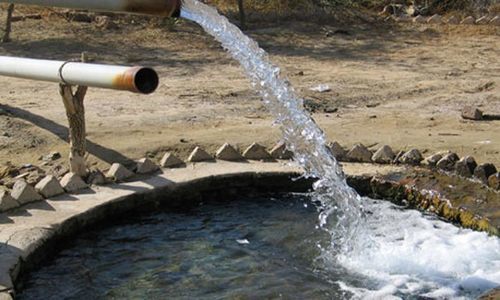SAHIWAL: A population of 5,000 in Chak 49/12-L of tehsil Chichawatni is at the risk of high intake of arsenic and TDS (total dissolved solid) through groundwater consumption.
Reports found arsenic and TDA levels in the village drinking water 700 times higher than the standard of the Environmental Protection Agency (EPA). The normal range of arsenic must be around 10 micrograms per litre and TDS around 50-150 PPM (parts per million) but in the village drinking water, it is found 50-200 micrograms per litre and 699-2,230 PPM, respectively.
This ‘slow poisoning’ through drinking water is highly dangerous, unsafe and unfit for crops, livestock, and human consumption.
According to the World Health Organisation (WHO), the immediate symptoms of acute arsenic poisoning include vomiting, abdominal pain and diarrhoea. These are followed by numbness and tingling of the extremities, muscle cramping and death, in extreme cases.
The first symptoms of long-term exposure to high levels of inorganic arsenic (for example, through drinking-water and food) are usually observed in the skin, and include pigmentation changes, skin lesions and hard patches on the palms and soles of the feet (hyperkeratosis). These occur after a minimum exposure of approximately five years and may be a precursor to skin cancer. In addition to skin cancer, arsenic may also cause cancers of the bladder and lungs.
Local doctor stumbles upon issue of arsenic, TDS levels 700 times higher than standards
“Other adverse health effects that may be associated with long-term ingestion of inorganic arsenic include developmental effects, diabetes, pulmonary disease and cardiovascular disease. Arsenic-induced myocardial infarction in particular can be a significant cause of excess mortality,” says WHO on its website.
It says arsenic is also associated with adverse pregnancy outcomes and infant mortality with impacts on child health, and exposure in utero and in early childhood has been linked to increases in mortality in young adults due to multiple cancers, lung disease, heart attacks and kidney failure.
The health department data reveals more than 250 patients in Chak 49/12-L suffering from different diseases in the village. Interestingly, there is no industrial waste and industrial hub near the village, which could cause the issue. For example, in Kasur city the arsenic level is higher in groundwater because of the tannery industry waste.
The issue came to surface by chance after a local skin specialist who came across a patient from Chak 49/12-L having symptoms of skin cancer. He directed the patient to get his drinking water tested.
The patient sent water samples to the local Public Health Engineering Water Testing Laboratory and the results raised alarm bells across the local administration.
The officials of the Judicial Water and Environment Commission, Lahore, took notice of the situation and many departments, including district health authority, Public Health Engineering, the district council, agriculture, Soil and Water Testing Laboratory and ADC (R) got involved in analysing the situation.
The Public Health Engineering Department (PHED) collected nine samples from hand pumps and tubewells and seven samples were found unfit for human consumption. Even water from the water pumps around the filtration plant was found unfit for human consumption.
The Chak 49/12-L, located 60km from Sahiwal city, was established when the irrigation system was introduced by the British after 1880. Its main source of irrigation is 12-L canal flowing with 350 cusec discharge half kilometre on the west of the village.
The village has a main RO filtration plant but it was dysfunctional since long while the villagers won’t use its water, complaining of bad taste. However, after the issue surfaced the filtration plant has been made functional again.
Many villagers while talking to this correspondence told about sudden deaths of cows and paralysis. Many farmers fear that the issue was caused by water used for animals from tube wells and water pumps.
Deputy Commissioner Imtiaz Khichi, talking to Dawn, termed high levels of arsenic and TDS natural in groundwater, claiming that it’s not because of any human intervention. He says all water below 120-200 feet in the village is not having high contents of arsenic and TDS.
“The deeper you go the less arsenic and TDS contents you find,” he adds.
Dawn learnt from sources in the district administration and health authorities had started work with multiple approaches. The LHVs are involved in running an awareness campaign in the village.
Villagers have been directed not to drink water from tubewells or hand pumps but from the recently rehabilitated RO filtration plant installed in the village.
It is learnt that the plant has now been rehabilitated and it is providing 2,000 litres of water to village inhabitants.
Sanitary inspector Shahid Masood along with village LHVs and lumberdars and other influential are educating the villagers not to take water from local sources except the RO filtration plant.
The DD (Agriculture Extension) said the agriculture in the village is safe because the crops are mostly irrigated from the canal water, which has no arsenic contents.
Deputy Commissioner Imtiaz Khichi said the district administration for a longer-term solution is working to have a public water scheme for the village.
Published in Dawn, December 11th, 2022












































